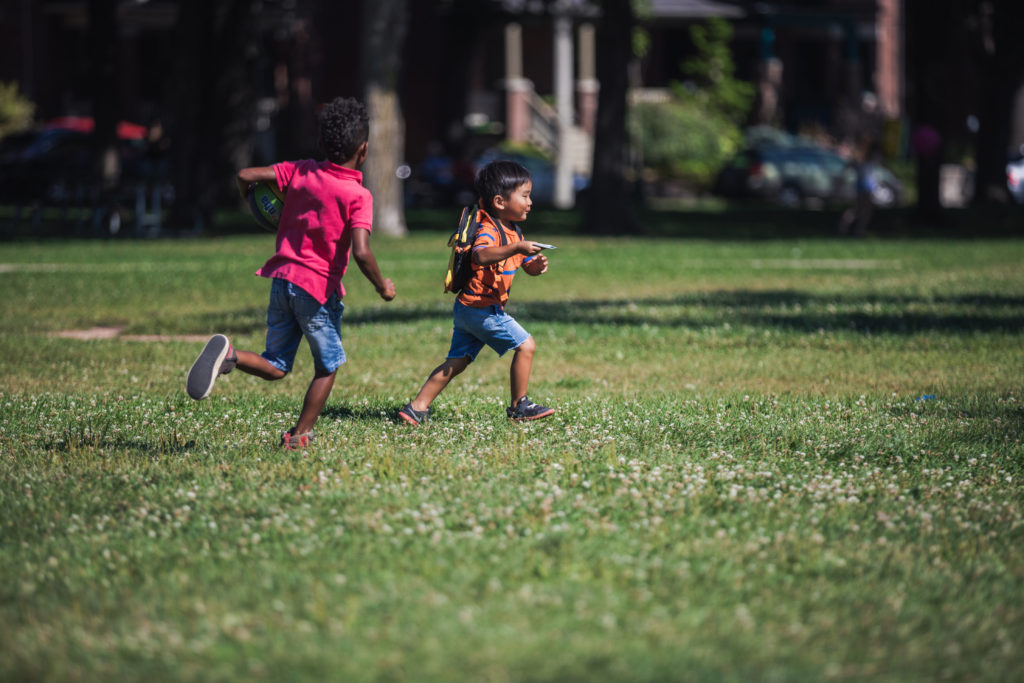The family stands as the cornerstone of a child’s growth and development, an intimate ecosystem where values are instilled, relationships are nurtured, and the foundation for a fulfilling life is laid. The power of family unity in children’s development is an undeniable force that shapes their character, emotional well-being, and cognitive growth.
At the heart of family unity lies the bedrock of nurturing relationships. The family serves as a child’s first social environment, where they learn about trust, empathy, and communication. Positive interactions within the family cultivate emotional intelligence, equipping children with the ability to understand and manage their own emotions, as well as navigate the complexities of human relationships. Shared moments, like family dinners or outings, create bonds that bolster a child’s sense of belonging and self-worth. These bonds become a source of strength, providing children with a secure foundation as they venture into the wider world.
Family unity provides an emotional safety net that is crucial for a child’s psychological well-being. When children experience support and validation from their family members, they develop a healthy sense of self-esteem and resilience. Emotional support in times of challenges or failures helps children understand that setbacks are part of life, and they learn to persevere. Family unity fosters an environment where children feel comfortable expressing their thoughts and emotions, leading to open and honest communication. These interactions contribute to the development of strong coping mechanisms and a positive outlook on life.
Family unity contributes significantly to the formation of a child’s sense of identity and belonging. Through shared traditions, stories, and values, children develop a cultural and familial identity that shapes their perception of self. Understanding their roots and heritage fosters a sense of continuity, connecting them to their past while empowering them to contribute to their family’s legacy. A strong sense of belonging within the family gives children a secure base from which to explore their individuality and aspirations, knowing that they are unconditionally supported.
Material resources play a tangible role in supporting family unity and a child’s development. Adequate housing, nutrition, and healthcare contribute to a child’s overall well-being, providing a strong foundation for their physical and mental growth. A safe and comfortable home environment encourages family bonding and nurtures a sense of stability. In addition, access to educational resources such as books, educational toys, and technology enhances cognitive development and supports a child’s learning journey. Ensuring that a family has the means to provide for its basic needs fosters a conducive environment for children to thrive. Material resources, while important, gain true value when they facilitate quality time spent together as a family. Family outings, vacations, and recreational activities create shared experiences that strengthen the family bond. These moments of togetherness allow for genuine connections, open conversations, and the building of lasting memories. Quality time together offers children a sense of security and reinforces their understanding that they are a cherished part of a unit that cares for and supports one another.
Access to educational opportunities is a material resource that significantly impacts a child’s development within the family unit. Quality education equips children with the knowledge and skills needed to navigate the world. It broadens their horizons, ignites their curiosity, and empowers them to pursue their aspirations. Educational resources such as books, online learning platforms, and tutoring services provide children with the tools they need to excel academically, enhancing their cognitive abilities and fostering a lifelong love for learning.
Material resources that contribute to a child’s healthcare and well-being are essential for their development. Regular medical check-ups, vaccinations, and a balanced diet support physical growth and prevent health issues. Adequate healthcare ensures that children are free from the limitations that illness can impose, allowing them to fully engage in their educational and recreational activities. Furthermore, good health enhances a child’s emotional well-being, enabling them to explore the world with energy and enthusiasm.
The power of family unity in children’s development cannot be overstated. The nurturing relationships, emotional support, sense of identity, and material resources within the family environment collectively shape a child’s character, well-being, and future prospects. Families that prioritize unity, emotional connection, and the provision of essential resources create a fertile ground for children to flourish. As we acknowledge the profound impact of family unity, let us strive to build strong family bonds, provide the necessary material resources, and create an environment where children can thrive emotionally, intellectually, and socially. By recognizing the interconnectedness of family unity and children’s development, we lay the groundwork for a generation that is resilient, compassionate, and equipped to face the challenges and opportunities that lie ahead.



